-
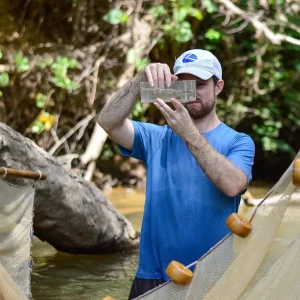
Phillip Bumpers
Postdoctoral Associate
Phillip is a Postdoctoral Associate in the Rosemond lab and the Wenger lab in the River Basin Center here in the Odum School of Ecology. Phillip is a broadly trained aquatic ecologist with interests in ecosytem ecology, foodweb and community ecology, and conservation ecology. Phillip’s research primarily focuses on three themes: 1) Quantifying how environmental variability (such as that caused by global change) shapes ecosystem structure and function, 2) exploring feedbacks between biotic and abiotic interactions, and 3) applying concepts from ecosystem ecology and life-history traits to the conseravation of freshwater organisms. Phillip approaches these themes across ecological scales, from individual populations to ecosystem functions such as organic matter breakdown. Much of Phillip’s on-going work focuses on leveraging and mantianing long-term observational studies in the Upper Coosa River system in northern Georgia, a biodiversity hotspot for freshwater fish and mussels. Additionally, Phillip continues working on the effects of nutrient pollution in forest stream ecosystems. Phillip received his MS in Ecology working with Dr. Rosemond before completing his PhD working with Dr. Rosemond and Dr. Wenger here in the Odum School.
-
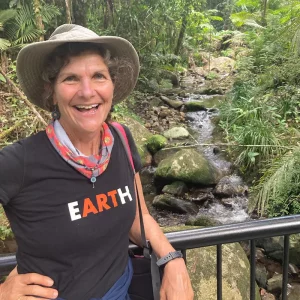
Amy Rosemond
UGA Foundation Professor in Ecology
Distinguished Research Professor
Amy is the lab’s principal investigator and hub of the team’s activities. She is so grateful to the students and other professionals who have added to the lab’s productivity and accomplishments.
-
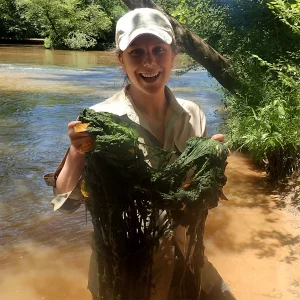
Cait Conn
PhD Candidate, co-advised by Seth Wenger
I am interested in how human activities, especially management practices, impact freshwater ecosystems and how scientific research can be used to better inform these management practices. My current research aims to quantify the effects of different flow conditions, and thus different management strategies, on the key ecological functions of stream metabolism and nutrient retention. Specifically, I am examining the role primary producers play in determining how ecological functions respond to varying flow conditions.
-
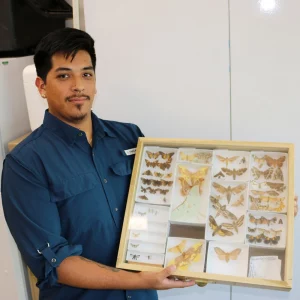
Carlos Vargas
MS Student
Carlos joined the Rosemond Lab as a Master’s student in 2023, after graduating with a B.S. in Biology from Davidson College in 2022. His previous research focused on the effects of disturbance on community composition. He now aims to study the effects of aquatic plant life presence on macroinvertebrate communities. Increased anthropogenic impacts on streams demand that we understand how populations are changing across all trophic levels. He hopes that by quantifying and identifying benthic macroinvertebrates, we can get an idea of these changes. Carlos is also broadly interested in scientific outreach and communication and hopes to develop skills to better communicate with local communities in science, especially the communities that are not historically included in science.
-
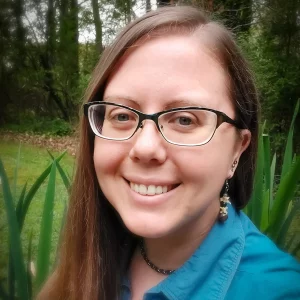
Breanna Ondich
Emerge Program Coordinator
Bre currently works full time with Dr. Rosemond coordinating the Emerge program and part time with The Alongside Wildlife Foundation. She obtained her B.Sc. in Marine Science-Biology from the University of Tampa in 2010 and her M.Sc. in Wildlife and Fisheries Biology at Clemson University in 2021. In between degrees, Bre lived in coastal Georgia for ten years working on Jekyll Island, first serving four terms with AmeriCorps, then working as an interpretive park ranger, and later supervising and mentoring several cohorts of AmeriCorps Members. During that time, she gained well-versed experience in sea turtle, box turtle, and freshwater turtle research and monitoring; as well as with leading public education programs in coastal ecology. She hopes to continue mastering the skills necessary to contribute to meaningful work in any of a number of fields related to geospatial science, natural resource conservation and equity, and viable human-wildlife coexistence.